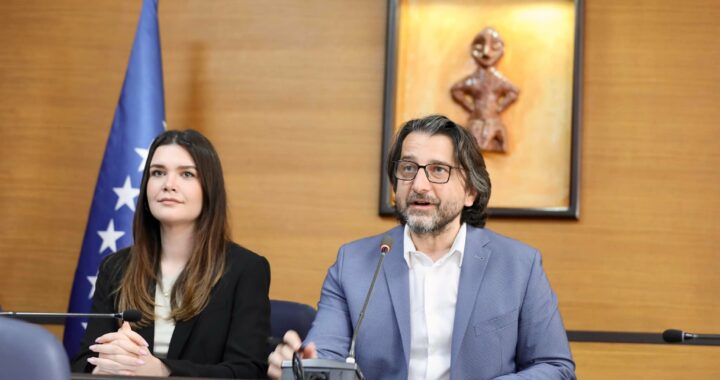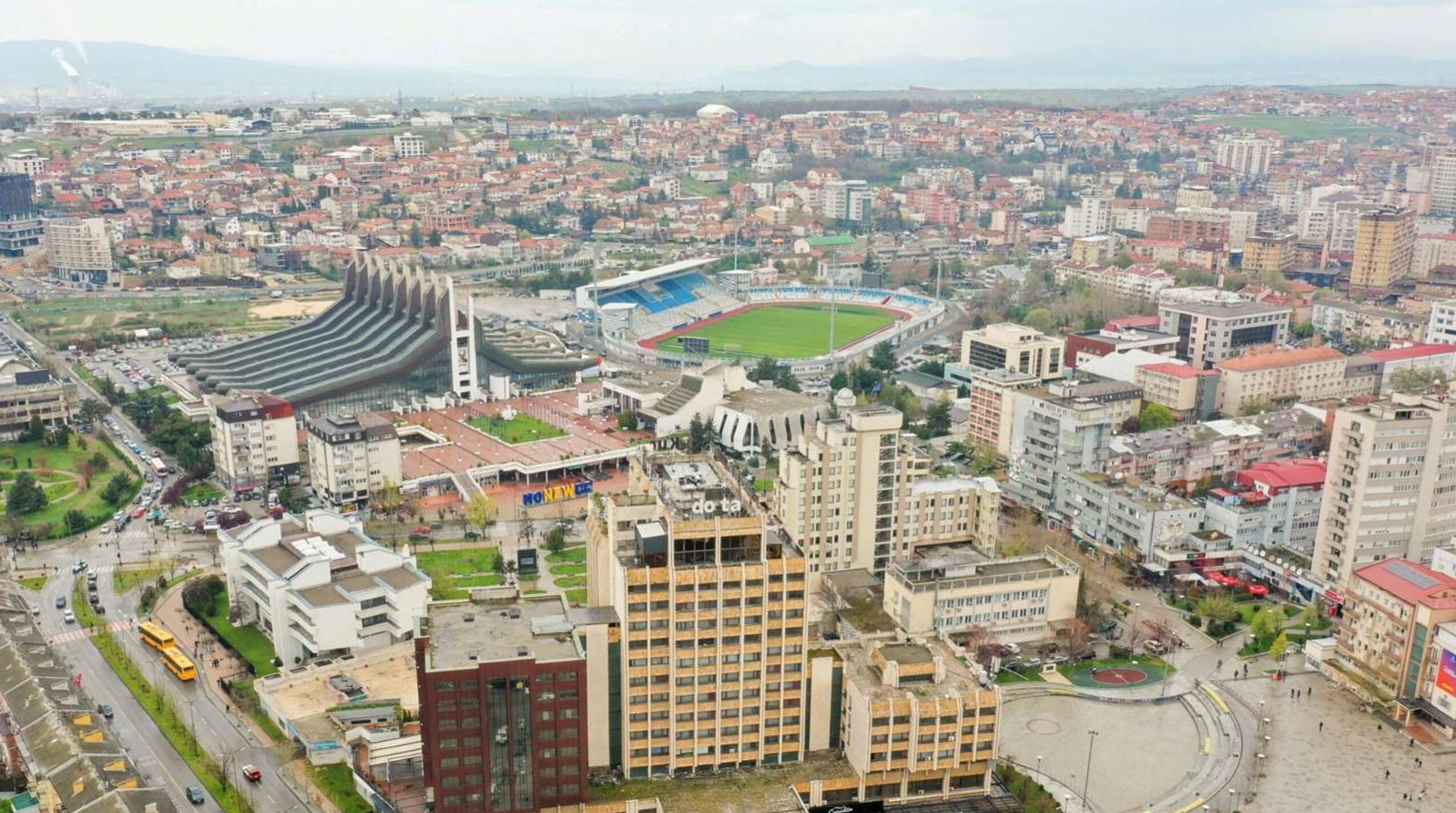

 Former deputy mayor of Prishtina, Donjeta Sahatciu (L), mayor Perparim Rama (R). Photo: Donjeta Sahatciu Official Facebook Account
Former deputy mayor of Prishtina, Donjeta Sahatciu (L), mayor Perparim Rama (R). Photo: Donjeta Sahatciu Official Facebook Account
The bust-up between the Democratic League of Kosovo and the Democratic Party of Kosovo in their governance of the capital will not necessarily get in the way of a coalition at central level, experts say.
Sudden dismissals of officials from the Democratic Party of Kosovo, PDK, in the municipality of Prishtina by Mayor Perparim Rama, from the Democratic League of Kosovo, LDK, have revealed a crisis in the coalition governing the Kosovo capital.
However, experts told BIRN this will not necessarily affect decisions on coalitions in the upcoming parliamentary elections, especially considering that they have not particularly collaborated at central level as opposition parties.
“The PDK and LDK have not collaborated in opposition (at central governance level), and it seems they will also not do so in the upcoming elections,” a political expert, Arton Demhasaj, told BIRN.
On February 5, Mayor Rama dismissed the PDK deputy mayor and director of the Education department, Donjeta Sahatciu, citing delays in the implementation of projects. Three days earlier, he dismissed the PDK director of Public Services, Ilirik Musliu, citing the situation with waste disposal in the city. Musliu via a Facebook video said he was “shocked” to learn of his dismissal through social media and insisted he had properly managed his duties.
Sahatciu deemed his dismissal an act of “revenge” because the PDK had refused to back a swap of properties at Badovc/Badovac lake with properties at Prishtina e Re, one the capital’s developing neighbourhoods.
In December, the Prishtina Municipal Assembly, with the participation of LDK and Vetevendosje assembly members, voted to swap the properties, completing a process that had started during the previous mayor’s mandate.
Implementation of the decision was postponed by the Prishtina Basic Court on February 2, however, on the request of a think tank, the Kosovo Justice Institution.
In late-January, Kosovo media had reported that Mayor Rama has a conflict of interest in the matter because one of the businessmen whose property was to be swapped had been a client of his in 2020, before he became mayor.
The PDK and Vetevendosje, Kosovo’s ruling party at central level, requested an extraordinary municipal assembly session, to be held on February 8.

The probable break-up of the LDK-PDK coalition in Prishtina will not reflect on relations between Kosovo’s parties at central level, experts told BIRN, not only because the three biggest Kosovo parties are not currently collaborating anyway but also because all three parties have a history of breaking and making coalitions.
“The LDK and PDK have an interesting history,” political expert Dritero Arifi told BIRN. “These parties have a long history of collaboration and coalitions, and of breaking these coalitions, at central as well as local level.”
Emir Abrashi agreed: “Even before, there were cases of the break-up of a coalition between the LDK and PDK and this did not affect their collaboration at local level… (however) since we are getting closer to parliamentary elections, it would be a good move by the parties that aim to have coalitions to refrain and not take actions that endanger potential collaboration.”
Arifi said the crisis in Prishtina municipality will likely not affect decisions on potential collaboration in the elections. “If they identify common interests and goals … for the future, they will sit down and discuss as if nothing had happened at local level,” he said.
Abrashi added that it is common for Kosovo parties to “show their muscles” prior to parliamentary elections “because they want to take the lion’s share in the central-level coalitions”.
According to Demhasaj, all three parties will enter the elections on their own with a potential return of the coalition between Vetevendosje and the Alliance for the Future of Kosovo, AAK, similarly to when they were in opposition. However, Abrashi said he does not consider that Vetevendosje sees a need to join such a coalition.
Both Demhasaj and Abrashi say the LDK would not likely join a potential coalition with Vetevendosje due to the infamous break-up of their joint government in 2020.
Nonetheless, Arifi believes that, “if a good momentum is offered at central level, it should be understood that there is a big difference in policymaking at the central level because the local level is limited geographically, as is the case in Prishtina.”
“The interest to collaborate is much greater at central level,” he concluded.
07 February 2024 - 16:26

In Prishtina’s rapidly expanding neighbourhoods a short walk can fee...

Mayor says new museum will strike a different note – by accenting th...

The ambitious plan to revitalise George Bush Street in the heart of Pr...

After Kosovo's Central Electoral Commission set April 21 as the date f...